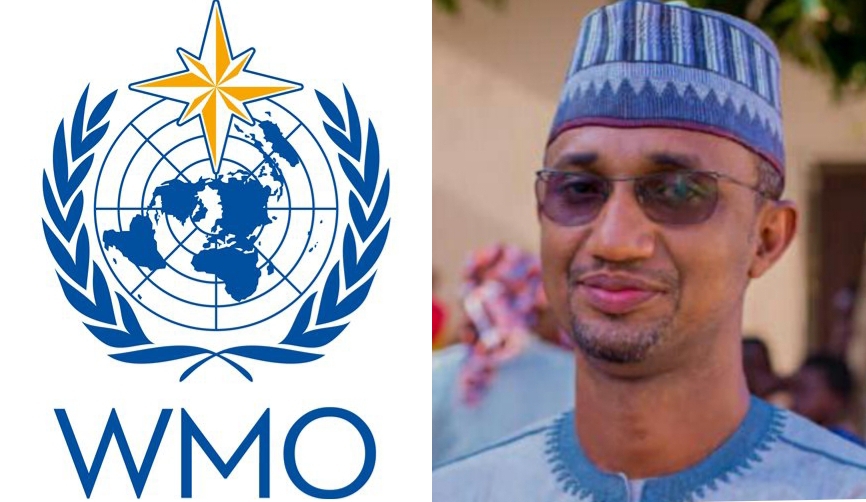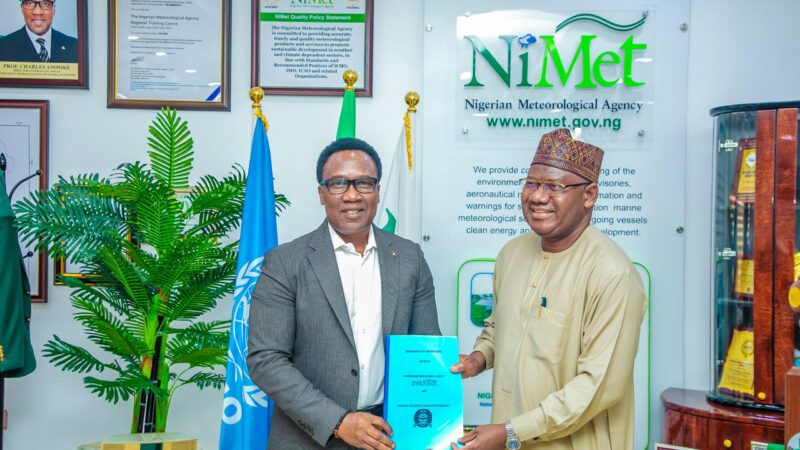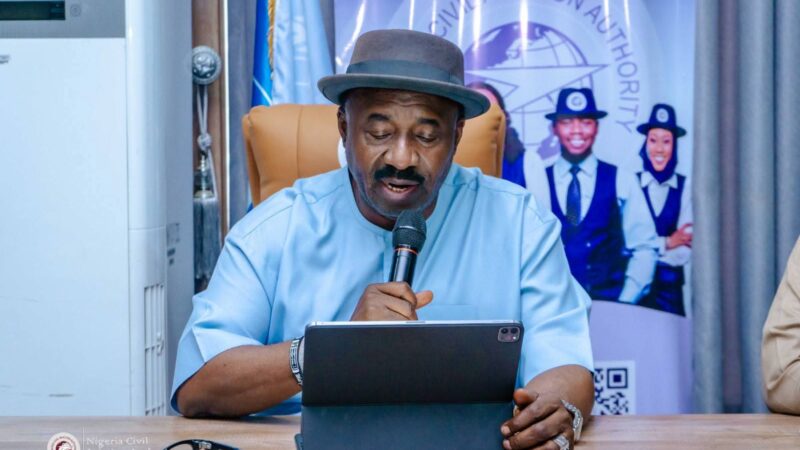WMD 2023: How NiMet promotes met science research for data generation in Nigeria

The Nigerian Meteorological Agency (NiMet) has expressed its commitment to investing in meteorological data generation over land, water and in the atmosphere.
Director-General of NiMet, Prof. Mansur Bako Matazu, in a keynote address to commemorate World Meteorological Day (WMD) on Thursday, March 23, 2023, said the agency has earned a pass mark for its meteorological services to the immediate and international community.
According to Matazu, this has been made possible with the support of the Federal Government of Nigeria by prioritizing investment in meteorological science, research skills and data generation over the years.
He explained that data, when generated, are so critical for past assessments and future predictions including nowcasting.
Highlighting some of the ways the agency has invested in data generation, Matazu said, “In NiMet, we have placed special importance in the future generations by working with the young minds in the country.
“Usually, our weather observers are largely youths who begin their careers in the field of meteorology at a very young age.
“Similarly, we have designed, developed and implemented a programme called Young Meteorological Ambassadors whose members are here today.”
He added that the agency has also engaged the university community in Nigeria to promote meteorological science at tertiary level.
“We have signed Memorandum of Understandings (MoUs) with several universities in Nigeria to promote the science of meteorology within the academic institutions at tertiary level.
“To support national and regional development, NiMet continues to render services in support of aviation, agriculture, construction, tourism, defence, water resources management, telecommunications, environment, communications, etc.
“The development of our products and services includes the effective utilisation of young minds as well as the experience within the Agency creating innovations to what we do and how we do them.
“This has positively impacted on our routine publications and on-demand services such as the Seasonal Climate Prediction as part of the Agency’s meteorological Early Warning System in line with the United Nations Early Warning for ALL.
“Other products and services include Hydrometeorological Bulletin, Annual State of the Climate report in Nigeria, Agrometeorological Bulletin, Climate and Health Bulletin, Daily weather outlooks and bulletins, TV weather forecasts, Terminal Aerodrome Forecasts, Marine Bulletin, Impact-Based Weather Forecast, and multitudes of other routine and on-demand products and services cutting across all socio-economic sectors,” said Matazu.
He disclosed that the agency was also working to preserve its past resources in terms of publications and instrumentation while developing new ones, thereby providing a robust knowledge base for the upcoming generations.
Speaking on the importance of WMD to the global community, Matazu recalled that “This ‘day’ commemorates the coming into force on 23rd March 1950 of the Convention establishing the World Meteorological Organisation.
“Prior to this date, the International Meteorological Organisation existed since 1873, as a cooperation of international bodies or institutions working tirelessly together, exchanging data and making forecasts for the good of all.
“This cooperation has been strengthened since the establishment of the World Meteorological organisation (WMO).”
He noted that events in met services and scientific research have evolved with technological innovations, allowing for adoption of modernised activities that are conducted in a more concise and efficient manner.
However, for the WMO and its 187 member states to be able to combat emerging trends in climate change amidst ravaging storms and harsh economic realities, Matazu called for effective cooperation among member states.
“We have witnessed the transition from an analogue society to a digital one, and the evolution is expected to continue.
“In the same way, the world climate has transited from variability to change while variability still continues within different climate environments.
“The global atmosphere continues to warm while nations struggle to adjust to the reality of combating climate change amidst economic gains. The average concentration of greenhouse gasses in the atmosphere continues to rise with devastating global consequences.
“It is very clear, however, that no country in the world is immune against the effect of the changing climate, whether as an emitter or non-emitter of these gasses.
“Indeed, happenings over the years have taught us all that weather has no boundary. The world has seen ravaging storms cutting across several international borders during their life cycles.
“This, therefore, echoes the essential of cooperation at the core of the existence of the WMO. As an organisation of 187 Member States and 6 Member Territories, the WMO requires that all its members will operate with common vision and goals.
Matazu added that the WMD provides opportunities for member countries to converge ideas and resources; and align in one common thematic area.
“The ‘Day’ showcases the essential contribution of National Meteorological and Hydrological Services (NMHss) such as NiMet and NIHSA (Nigeria Hydrological Services Agency) to the safety and wellbeing of society and is celebrated with activities around the world.
“For each year’s celebration, a theme is usually chosen for World Meteorological Day to reflect topical weather, climate, or water-related issues. The theme for 2023 is “The future of weather, climate and water across generations,” said Matazu







